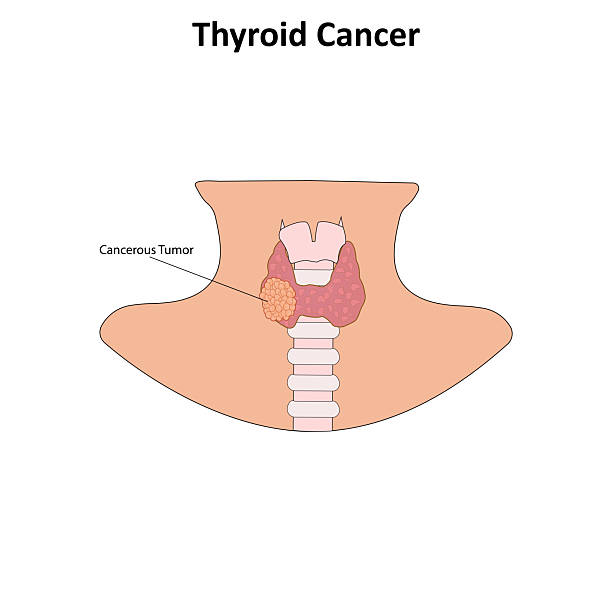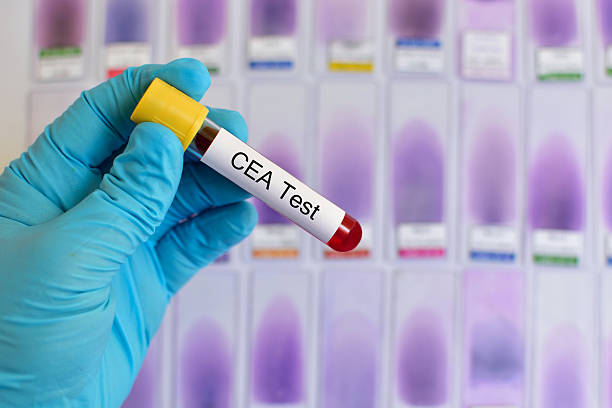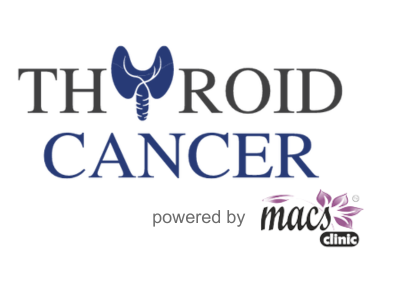Medullary Thyroid Cancer
What Is Medullary Thyroid Cancer?
Medullary thyroid cancer accounts for about 3–4% of all thyroid cancer cases, yet it remains a major clinical focus due to its unique behavior and potential to be hereditary. It originates from C cells, which are responsible for producing calcitonin, a hormone involved in calcium regulation.
There are two major types of MTC:
- Sporadic MTC: Occurs in individuals without a family history and constitutes approximately 75% of cases.
- Hereditary MTC: Makes up about 25% and is linked to RET gene mutations, often as part of MEN 2 syndrome.
Although MTC tends to be more aggressive than differentiated thyroid cancers, advances in early detection, genetic testing, and surgical precision have vastly improved prognoses.
“Medullary thyroid cancer requires a multidisciplinary, gene-guided approach. The key is precise diagnosis, followed by meticulous surgical intervention—ideally before the disease spreads.”— Dr. Sandeep Nayak, Surgical Oncologist, Bangalore.

Causes and Risk Factors of MTC
Understanding the root causes can guide both treatment and prevention.
Primary Causes:
- Genetic Mutation (RET gene): A majority of hereditary MTC cases stem from mutations in the RET proto-oncogene.
- MEN 2 Syndrome: This includes MEN 2A and MEN 2B, conditions associated with multiple endocrine tumors, including MTC.
Other Risk Factors:
- Family history of MTC or MEN 2
- Radiation exposure (though less relevant in MTC compared to other thyroid cancers)
- Age and gender: Sporadic MTC commonly affects individuals in their 40s to 60s and is slightly more common in females.
Common Symptoms of Medullary Thyroid Cancer
Medullary thyroid cancer symptoms may appear subtly at first but can become more pronounced as the tumor grows.
Symptoms Include:
- A painless lump or swelling in the neck
- Hoarseness or changes in voice
- Difficulty swallowing
- Swollen lymph nodes in the neck
- Diarrhea (due to hormone production by the tumor)
- Facial flushing or redness
Because these symptoms can mimic other benign conditions, they are often overlooked. Hence, timely assessment is crucial.

Have a Question?
If you are unsure about your risk, talk to your doctor about RET gene testing and early screening strategies.
How Is Medullary Thyroid Cancer Diagnosed?
Diagnosing MTC involves a combination of imaging, lab tests, and sometimes genetic analysis. Here’s how it works:
Blood Tests:
- Calcitonin: High levels are a key indicator of MTC.
- CEA (Carcinoembryonic Antigen): Another tumor marker used for prognosis and monitoring.
Imaging:
- Ultrasound of the neck: Identifies thyroid nodules and enlarged lymph nodes.
- CT or MRI scans: Used when there’s suspicion of spread beyond the neck.
- PET scans: Occasionally used to locate metastases if calcitonin remains high after surgery.
Fine-Needle Aspiration (FNA) Biopsy:
- A small sample is taken from the thyroid nodule using a thin needle.
- If calcitonin is measured in the biopsy fluid, it can confirm MTC even before surgery.
Genetic Testing:
Staging and Classification of MTC
Once MTC is diagnosed, staging helps determine how far it has progressed.
- Stage I: Tumor is small and confined to the thyroid.
- Stage II: Tumor has grown larger but hasn’t spread outside the thyroid.
- Stage III: Cancer has spread to nearby lymph nodes in the neck.
- Stage IV: Cancer has spread to distant parts of the bodylike the liver, lungs, or bones.
The staging system helps doctors choose the most effective treatment and estimate prognosis. Early stages usually respond very well to surgery, while later stages may require targeted treatments or close follow-up.
Treatment Options for Medullary Thyroid Cancer
The mainstay of medullary thyroid cancer treatment is surgery, but depending on the stage, other options may also be needed.
Surgical Management:
- Total Thyroidectomy: Removal of the entire thyroid gland is necessary to prevent recurrence.
- Neck Lymph Node Dissection: If cancer has spread to nearby nodes, these are also removed during surgery.
At advanced centers like MACS Clinic, the RABIT technique (Robotic-Assisted Breast-axillo Insufflation Thyroidectomy) allows for precise, minimally invasive surgery with no visible scar on the neck.
Medical Treatments:
- Targeted Therapy: In advanced or metastatic MTC, medications such as vandetanib or cabozantinib block the signals that help cancer grow.
- Radiotherapy: Rarely used but may help in palliative cases where surgery isn’t possible.
Have a Question?
Learn more about the available treatment options so you can make informed decisions with your healthcare provider.
Post-Treatment Monitoring and Follow-Up Care
Ongoing monitoring is essential to detect recurrence early and manage long-term health.
Regular follow-up includes:
Calcitonin and CEA testing: If levels rise, it may indicate recurrence or residual disease.
Patients may require lifelong follow-up due to the risk of delayed recurrence, particularly in hereditary cases.

Why Early Diagnosis Matters in MTC
Higher surgical success rates
Avoidance of distant organ involvement
Improved survival outcomes
Genetic Counseling and Family Screening
Key Elements:
- Genetic Testing: RET mutation screening in immediate relatives.
- Counseling: To understand inheritance patterns and options.
- Preventive Surgery: Prophylactic thyroidectomyin children with MEN 2 mutations is often recommended.

Living with Medullary Thyroid Cancer
While MTC presents unique challenges, many patients lead fulfilling lives with proper care.
Tips for long-term well-being:
Take thyroid hormone replacement as prescribed
Stay consistent with follow-up visits
Talk to a counselor or join a support group to manage emotional stress

Have a Question?
Know when to act—consult a healthcare expert if you experience persistent neck swelling or voice changes.
